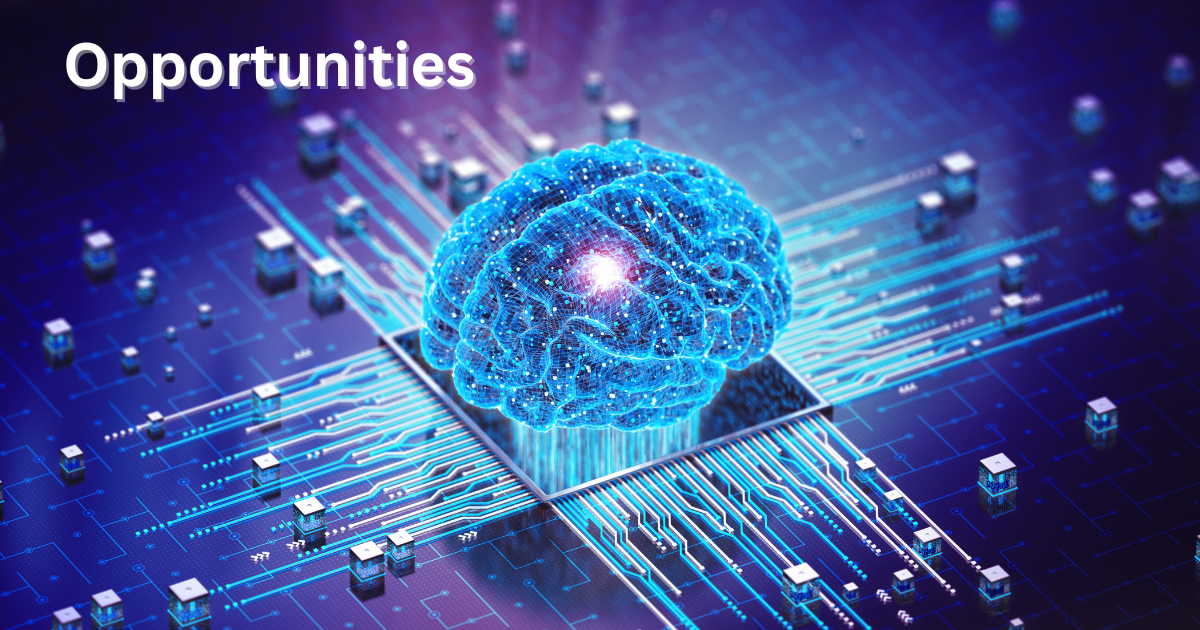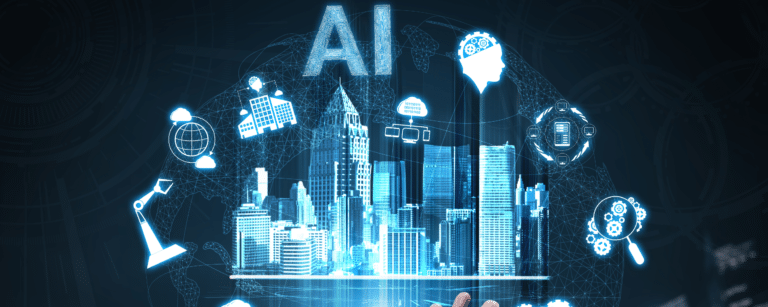Future Scope Of Artificial Intelligence
Artificial Intelligence (AI) is one of the most exciting and rapidly evolving fields in modern technology. Its applications are vast and far-reaching. It has the potential to revolutionize the way we live, work, and interact with the world around us. As AI technology continues to advance, so does the scope of artificial intelligence.
In this article, we will explore the current state of AI, and its potential future advancements, opportunities, and challenges. We will also discuss the impact of AI on society and its implications for the future.
Current State of Artificial Intelligence
Autonomous vehicles are one of the most prominent applications of AI in the current state of technology. These vehicles use AI algorithms and machine learning algorithms to navigate the roads. Then they make decisions based on the data they collect.
Data analysis is an essential part of AI. It allows machines to interpret large amounts of data and make decisions based on that data. Cybersecurity is another area where AI is becoming increasingly important.
AI-powered cybersecurity systems can detect and respond to threats more quickly and accurately than traditional systems. This is due to the fact that AI algorithms are capable of analyzing large amounts of data. It can also identify patterns that humans might not be able to see.
In the popular smart home market, AI-powered smart home assistants are becoming increasingly common. These are Amazon Echo and Google Home. These devices use machine intelligence and machine learning to learn the preferences and habits of their users. It provides customized recommendations and services.
Advancements in Artificial Intelligence
Deep learning networks are one of the most significant advancements in AI in recent years. These networks use complex algorithms to analyze data and make predictions based on that data. Machine learning algorithms are also evolving rapidly. This allows machines to learn from large amounts of data and make decisions based on that data.
Natural Language Processing (NLP) is another area where AI is advancing rapidly. NLP algorithms allow machines to understand and respond to human language more accurately, opening up new possibilities for communication and interaction.
In robotics, AI-powered robots are becoming increasingly sophisticated and capable of performing complex tasks. These robots are used in manufacturing, healthcare, and other industries where automation can improve efficiency and productivity.
Opportunities for Artificial Intelligence
AI is opening up new opportunities in a variety of industries. In healthcare, AI-powered medical devices and systems can improve patient outcomes by providing more accurate diagnoses and personalized treatment options. While manufacturing, AI can optimize production processes and reduce waste.
In finance, AI-powered systems can detect fraud and analyze financial data more accurately. And in retail, AI can be used to provide personalized recommendations and improve the customer experience. In education, AI-powered systems can personalize learning experiences and improve educational outcomes for students of all ages.
Challenges and Concerns
One of the most significant challenges facing AI is the ethical implications of its use. Machines become more intelligent and capable. There comes a risk that they could make decisions that are harmful or unfair to humans.
There is also concern about job displacement, as AI-powered automation could eliminate many jobs that are currently performed by humans. Privacy is another concern, as AI systems can collect and analyze large amounts of personal data.
Future Scope of Artificial Intelligence
The future scope of artificial intelligence is vast and exciting, with the potential to revolutionize virtually every aspect of our lives. From healthcare to finance, manufacturing to retail, AI has the potential to drive innovation and improve efficiency in countless industries.
One area where AI is likely to have a significant impact is autonomous vehicles. With the development of advanced AI algorithms and deep learning networks, self-driving cars are becoming increasingly sophisticated and reliable. In the near future, we can expect to see a growing number of autonomous vehicles on our roads. They have the potential to reduce traffic congestion, improve road safety, and make transportation more accessible and efficient.
Another area where AI is likely to play a major role is in the field of data analysis. They have the ability to process and analyze large amounts of data quickly and accurately. AI has the potential to unlock insights that would be impossible to detect with the human eye alone.
This could lead to major advancements in fields such as healthcare. AI could be used to identify patterns and correlations in patient data, leading to more accurate diagnoses and personalized treatments.
However, as with any emerging technology, there are also concerns about the potential risks and challenges posed by AI. Cybersecurity is one major concern. AI algorithms are capable of learning and adapting at a pace that could potentially outstrip our ability to keep them secure. There are also concerns about job displacement, as AI-powered automation threatens to displace workers in many industries.
Impact of AI on Society
The rapid development of Artificial Intelligence (AI) is having a profound impact on society, with many implications for the future. One of the areas of impact is cognitive AI, which refers to the ability of AI systems to learn and adapt. This is based on the insights gathered from large amounts of data.
These insights can often go beyond what human eyes can see. This allows AI to uncover patterns and correlations that might otherwise go unnoticed. The scope of artificial intelligence is vast, encompassing a wide range of applications across many different fields.
One of the biggest areas of focus for AI is big data. This is becoming increasingly important in fields such as healthcare, finance, and manufacturing. AI algorithms are capable of processing and analyzing large amounts of data quickly and accurately. This allows for insights that would be impossible to uncover using traditional methods.
However, the rise of AI also poses a number of challenges, particularly in the areas of ethics, job displacement, and privacy. There are concerns that AI could be used to automate jobs that were previously done by humans. This leads to significant job loss in certain industries.
Potential Misuse of Artificial Intelligence
There are also concerns about the potential misuse of AI. Particularly in cyber security, where AI could be used to create more sophisticated attacks, they are harder to detect and defend.
The impact of AI on society is not limited to the realm of computer science and technology. As AI becomes more advanced, it is likely to have profound implications for fields such as healthcare. There it could be used to improve the accuracy of diagnoses and the effectiveness of treatments.
In addition, AI-powered smart home assistants are already changing the way people interact with their homes. This trend is only likely to continue in the future. Examples are Amazon Echo and Google Home
One of the key questions facing society today is how to ensure that AI is developed. It should be used in a way that is ethical and beneficial for all. This will require careful consideration of the implications of AI across a wide range of areas.
The areas include privacy, security, and job displacement. It will also require a deep understanding of the capabilities and limitations of AI. It requires an appreciation for the unique insights that human intelligence can provide.
Conclusion
As the field of artificial intelligence continues to evolve, its scope and potential impact on society are only likely to grow. From autonomous vehicles to smart home assistants and everything in between, the possibilities for AI are vast and exciting.
However, as with any emerging technology, there are also concerns about the potential risks and challenges posed by AI. It is important that we approach the future of AI with caution and care. We should consider both the potential benefits and drawbacks of this rapidly evolving technology.
Ultimately, the future scope of artificial intelligence will be shaped by the choices we make today. By working together to create a sustainable future for AI, we can harness the full potential of this exciting technology. We can also minimize its risks and challenges.
Frequently Asked Questions (FAQs)
1. Is artificial intelligence a good career?
Yes, artificial intelligence is a promising career choice with strong growth potential. As such, there is increasing demand for professionals with AI skills, including data scientists, machine learning engineers, and AI researchers. With high salaries and opportunities for career advancement, AI is a field worth considering for those interested in technology and innovation.
2. What is the scope for artificial intelligence and machine learning?
The scope for artificial intelligence and machine learning is vast and expanding rapidly. With the ability to automate tasks, analyze large amounts of data, and make predictions and recommendations, AI and ML are driving significant improvements in efficiency and productivity.
3. Is AI better or data science?
AI and data science are related fields that are both important for making sense of large amounts of data. While AI involves creating intelligent systems that can perform tasks that typically require human intelligence, data science involves using statistical and computational methods to extract insights from data. Both fields have their own unique applications and skill sets and are important for addressing different types of problems.













